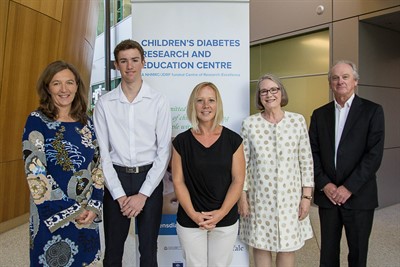Search
Research
Exercise Management for Young People With Type 1 Diabetes: A Structured Approach to the Exercise ConsultationThis review provides a structured approach to assist in formulating person-specific exercise management plans for young people with T1D
Research
Cohort Profile: HABITAT-a longitudinal multilevel study of physical activity, sedentary behaviour and health and functioning in mid-to-late adulthoodThe benefits of physical activity in reducing the risk of non-communicable diseases are well documented. Physical inactivity contributes to 6–10% of the burden of coronary heart disease, type 2 diabetes, and breast and colon cancers.
Research
The relationship between meal carbohydrate quantity and the insulin to carbohydrate ratio required to maintain glycaemia is non-linear in young people with type 1 diabetes: A randomized crossover trialTo determine if the relationship between meal carbohydrate quantity and the insulin to carbohydrate ratio (ICR) required to maintain glycaemia is linear in people with type 1 diabetes.
Research
The Effect of Hypoglycemia on Spectral Moments in EEG Epochs of Different Durations in Type 1 Diabetes PatientsThe potential of using an electroencephalogram (EEG) to detect hypoglycemia in patients with type 1 diabetes has been investigated in both time and frequency domains. Under hyperinsulinemic hypoglycemic clamp conditions, we have shown that the brain's response to hypoglycemic episodes could be described by the centroid frequency and spectral gyration radius evaluated from spectral moments of EEG signals.
Research
International consensus on use of continuous glucose monitoringThis article summarizes the ATTD consensus recommendations and represents the current understanding of how CGM results can affect outcomes.
Research
Immune modulation by UV: Role of vitamin DIn this chapter, evidence for and evidence against the involvement of vitamin D in the immunoregulatory properties of UV radiation is presented.
Research
Acute hyperglycaemia does not alter nitric oxide-mediated microvascular function in the skin of adolescents with type 1 diabetesWe assessed the impact of an acute bout of hyperglycaemia on nitric oxide (NO)-mediated microvascular function in the skin of adolescents with type 1...

News & Events
Major focus for children’s diabetes research in WALaunch of the WA Children's Diabetes Research and Education Centre for Research Excellence (CRE) on the eve of World Diabetes Day.
Research
Using continuous glucose monitoring to detect early dysglycaemia in children participating in the ENDIA study (Sub Protocol)Aveni Liz Haynes Davis BA (Hons), MBBChir, MA (Cantab), PhD MBBS FRACP PhD Principal Research Fellow Co-director of Children’s Diabetes Centre
Research
The use of an automated, portable glucose control system for overnight glucose control in adolescents and young adults with type 1 diabetesA key milestone in progress towards providing an efficacious and safe closed-loop artificial pancreas system for outpatient use is the development of fully...
